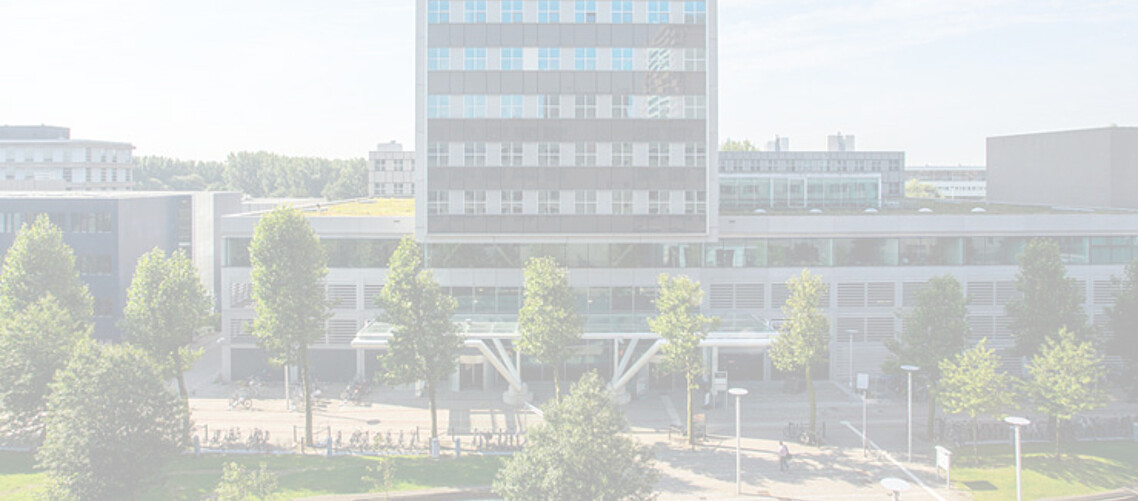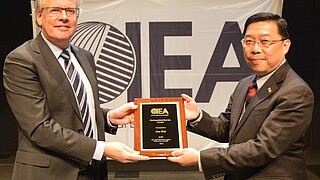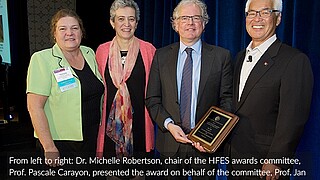Within the context of a participatory society and a changing role on the part of the government in regard to regulations Jan Dul, Professor of Technology and Human Factors at RSM, has taken the initiative, with others, to start up and head a comprehensive project whose objective is to provide an answer – within a time period of several years – to how work environments are organised then.
The project will aim to investigate which initiatives are undertaken: by whom, what the reasons are for these and what the impeding internal and external factors are that could lead to optimal work environments for improved performance. What’s more, companies will be encouraged to learn from each other.
The consortium consists of members that represent both the knowledge and the practical fields. In addition to RSM (business knowledge), the group includes Erasmus MC (medical knowledge), the Koninklijke Metaalunie (Royal Metal Union, employer representation), CNV Jongeren (youth branch of the National Federation of Christian Trade Unions, employee representation) and ArboNed (health and safety service).
Initially, this project follows 12 companies in the metal industry and will later follow 60. An information platform in the form of a website is being developed, where all those who are directly involved (including managers and employees of participating companies) can actively submit suggestions for initiatives. A tool is also being developed to monitor the effects on performance, including safety and health. The participating companies will receive a report on all of this. The data analysis will help determine what does and what does not work and what the success factors are that contribute to a company’s performance. This information will then offer tips and tools for the next steps, possibly also for companies outside of the metal industry.
Jan Dul is highly enthusiastic about this novel project: “This is most definitely a project that has a great degree of relevance to the business community and to society as a whole. We are proud of our collaboration with so many different parties who all have only one interest at heart: To learn from each other and amass and spread knowledge that can help companies organise themselves so as to achieve improved performance, even when government withdraws its participation.”
Note for the media (not for publication)
With some 13,000 members, the Koninklijke Metaalunie (Royal Metal Union) is the largest employer’s organisation for small and medium-sized enterprises in the metal industry. It promotes the interests of both the business sector as well as the business interests of its individual members: metal companies with up to about 100 employees in various sectors. Together, the members boast revenues of EUR 20 billion and offer employment to some 150,000 people. https://metaalunie.nl
CNV Jongeren is the Netherlands’ independent youth labour union. CNV Jongeren protects the interest of young employees in the Netherlands: the side jobs workers, apprentices, holiday workers and people just entering the work force. We make sure that the young generation can work safely, their rights are protected and their interests are included in policy decisions. In addition, CNV Jongeren has successfully set up, implemented and completed several projects in the pension sector in recent years. Pensions and youth participation are an important spearhead in our policy. We have a great deal of experience with youth participation on tough issues, such as working in safe and healthy conditions, pensions and tax refunds. The aim of each of our projects is for the work to be done as much as possible with, for and by youth. www.cnvjongeren.nl
Erasmus MC is the largest and most authoritative scientific University Medical Center in the Netherlands. Almost 13,000 staff members work within the core tasks of patient care, education, and scientific research on the continuous improvement and enforcement of individual patient care and social healthcare. They develop high-level knowledge, pass this on to future professionals, and apply it in everyday patient care. Over the next five years, Erasmus MC wants to grow into one of the best medical institutes in the world. www.erasmusmc.nl
ArboNed is a leading, professional service provider aimed at improving the sustainable employability of employees, thus reducing illness-related absence within companies and institutes. ArboNed builds on 20 years of expertise in dealing with illness-related absence. Proceeding from our focus on innovation and specialisation we enrich our knowledge regarding absence. Our tried and tested services rest on a scientific foundation. We provide our services to 70,000 employers and more than 1 million employees on a daily basis. Clients include small and medium-sized companies, multinationals, institutes and local and national governments. www.arboned.nl
Rotterdam School of Management, Erasmus University (RSM) is ranked amongst Europe’s top 10 business schools for education and amongst the top three for research. RSM provides ground-breaking research and education furthering excellence in all aspects of management and is based in the international port city of Rotterdam - a vital nexus of business, logistics and trade. RSM’s primary focus is on developing business leaders with international careers who carry their innovative mindset into a sustainable future thanks to a first-class range of bachelor, master, MBA, PhD and executive programmes. RSM also has offices in the Amsterdam Zuidas business district and in Taipei, Taiwan. www.rsm.nl
For more information on RSM or on this release, please contact Marianne Schouten, Media & Public Relations Manager for RSM, on +31 10 408 2877 or by email at mschouten@rsm.nl.


